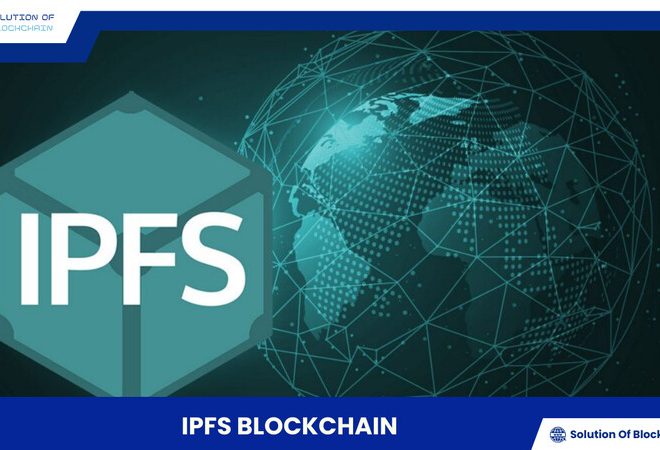
Blockchain research: A comprehensive guide for beginners
Blockchain is revolutionizing the investment and finance industry. Studying Blockchain will not only help you grasp this pioneering technology but also open the door to potential investment opportunities. Start your journey into the world of blockchain and learn how to conduct effective blockchain research to stay ahead of the curve!
What is Blockchain?
Blockchain is a distributed ledger technology (DLT) that allows transactions to be recorded and verified securely, transparently, and immutably. Instead of storing data in a central location, Blockchain distributes data across multiple computers (nodes) in a network. Each transaction is recorded as a “block,” and these blocks are linked together in a “chain” using cryptographic hash functions.
Types of Blockchains
There are three main types of Blockchains:
- Public Blockchain: This type of Blockchain allows anyone to join the network, read data, conduct transactions, and participate in the consensus process. Bitcoin and Ethereum are prime examples of Public Blockchains. The advantages of this type are high transparency and decentralization. However, it also has disadvantages such as slower transaction processing speed and potentially high transaction fees.
- Private Blockchain: This type of Blockchain is controlled by a specific organization or group of people. Access and transaction validation rights are restricted, with only authorized individuals allowed to participate in the network. Private Blockchains are often used within businesses or organizations to enhance internal operational efficiency. Its advantages include fast transaction processing speed and high security, but it is less transparent than Public Blockchain.
- Permissioned Blockchain: This is a hybrid of Public and Private Blockchains. It allows certain nodes to have transaction validation rights while still allowing others to participate in the network. Permissioned Blockchains are often used in business alliances or organizations that need a balance between security and transparency.
Depending on the purpose and specific requirements, each type of Blockchain has its own advantages and disadvantages. Researching Blockchain will help you better understand the differences between these types and choose the one that best suits your needs.
Key features of Blockchain
Blockchain stands out from traditional technologies due to the following features:
- Decentralized: Unlike centralized databases, Blockchain distributes data across multiple computers (nodes) in the network. This eliminates a single point of failure, enhancing resilience against attacks and censorship. For example, if one node is attacked, the other nodes continue to operate normally, and the data remains protected.
- Immutable: Data on the Blockchain cannot be altered or deleted once recorded. Each block contains information about the previous block, forming an unbreakable chain. This ensures data integrity, preventing fraud and information manipulation.
- Transparent: All transactions on the Blockchain are recorded publicly and can be viewed by anyone with access to the network. This enhances transparency and accountability, helping to build trust among participants.
- Secure: Blockchain uses cryptography to protect data and prevent counterfeiting. Each block is linked to the previous block using hash functions, creating a secure cryptographic chain. Transactions are validated by the network, ensuring validity and preventing fraudulent activities.
- Efficient: Blockchain can help automate processes, minimize third-party intervention, and accelerate transaction speeds. This saves time and costs for businesses and organizations.
What does Blockchain research entail?
Blockchain research is a broad field, encompassing in-depth exploration of Blockchain technology in many aspects, from its technicalities to its applications and impact. The ultimate goal is to understand the operating mechanisms, benefits, limitations, and potential of this technology to effectively apply and develop Blockchain.
Specifically, when researching Blockchain, we focus on the following aspects:
Architecture and consensus mechanisms
- Understand the data structure of Blockchain, how blocks are linked together, and how information is stored.
- Study different types of Blockchains (public, private, permissioned) and compare their advantages and disadvantages.
- Analyze consensus mechanisms such as Proof of Work (PoW), Proof of Stake (PoS), Delegated Proof of Stake (DPoS), etc., to understand how the network reaches consensus on the state of the Blockchain.
Cryptography
- Study the encryption algorithms used in Blockchain to ensure security, data integrity, and transaction authentication.
- Learn about concepts such as hash functions, digital signatures, public key cryptography, etc., and how they are applied in Blockchain.
Smart Contracts
- Understand the nature and operation of Smart Contracts – self-executing programs on the Blockchain that are triggered when pre-programmed conditions are met.
- Study how to program and deploy Smart Contracts on different Blockchain platforms.
- Analyze the applications of Smart Contracts in various fields, from finance and supply chain to copyright management and electronic voting.
Applications of Blockchain
Explore and analyze the practical applications of Blockchain in various fields, including:
- Finance – Banking: International payments, money transfers, lending, DeFi, etc.
- Supply Chain: Product origin tracking, inventory management, anti-counterfeiting, etc.
- Healthcare: Medical record storage and sharing, drug management, etc.
- Real Estate: Land registry management, real estate transactions, etc.
- Elections: Transparent and secure electronic voting.
Economic and social impact
- Study the impact of Blockchain on the economy, society, and various industries.
- Analyze the potential benefits of Blockchain, such as increased efficiency, reduced costs, and enhanced transparency.
- Consider the challenges and risks associated with Blockchain, including regulatory issues, security, and energy consumption.
The importance of Blockchain research in investment finance
In the field of investment finance, Blockchain research plays a crucial role, opening up new opportunities and challenges:
- Enhanced operational efficiency: Blockchain helps reduce transaction costs, automate processes, and accelerate transaction processing speeds. For example, banks can use Blockchain to minimize the cost of processing international payments.
- Improved security: Blockchain provides a more secure and reliable system for financial transactions, helping to prevent fraud and protect investor assets.
- Increased transparency: Blockchain enhances transparency in financial transactions, helping to build investor confidence. For example, investors can transparently track the flow of funds for an ICO project on the Blockchain.
- New investment opportunities: Blockchain is the foundation for many new investment opportunities, such as DeFi, NFTs, and the Metaverse. Investors can participate in these new markets to diversify their portfolios and seek profits.
- Promoting fintech development: Blockchain is a key driver for the development of Fintech (Financial Technology), bringing more innovative and convenient financial solutions to users.
Potential areas of Blockchain research in investment finance
Blockchain research in investment finance is rapidly evolving, with many potential research directions:
- Next-Generation Blockchains: Research and development of next-generation Blockchains with scalability, increased transaction speeds, and reduced costs. For example, layer-2 Blockchains like Lightning Network and Polygon are being developed to address the scalability issues of Ethereum.
- Blockchain applications in asset management: Researching how to apply Blockchain to tokenize assets, manage portfolios, and conduct asset transactions efficiently and securely.
- Blockchain and DeFi: Continued research and development of decentralized finance (DeFi) applications on the Blockchain platform, such as lending and borrowing, currency trading, and fund management.
- Research on laws and regulations: Researching and proposing appropriate legal and regulatory frameworks for the Blockchain and cryptocurrency market, ensuring the sustainable development of the market.
- Analyzing the impact of Blockchain on traditional financial markets: Researching and assessing the impact of Blockchain on traditional financial markets, such as stocks, bonds, and foreign exchange.
How to start researching Blockchain
If you are interested in researching Blockchain, here are some suggestions to get you started:
- Learn the basic concepts: Start by reading articles, books, and online materials about Blockchain to grasp basic concepts such as data structure, consensus mechanisms, and smart contracts. You can refer to reputable sources like the Bitcoin whitepaper, “Mastering Bitcoin” by Andreas Antonopoulos, or online courses on Coursera, edX, and Udemy.
- Join the Blockchain community: Connect with others in the Blockchain community through forums, Facebook groups, Telegram, or offline events. This is an opportunity for you to exchange knowledge, experiences, and learn from those who have come before you.
- Practice with Blockchain platforms: Experiment with popular Blockchain platforms like Ethereum, Hyperledger Fabric, or Corda to gain a better understanding of how they work. You can create a cryptocurrency wallet, conduct transactions, or even write simple smart contracts.
Blockchain research is an exciting and potentially rewarding journey. In the field of investment finance, Blockchain is ushering in a new era with many opportunities and challenges. By learning and exploring this technology, you can grasp future trends, expand your knowledge, and develop your career in a promising field. Start researching Blockchain today to become a part of this technological revolution!
Don’t forget to follow Solution Of Blockchain to update other useful information and knowledge about blockchain and blockchain research every day!






